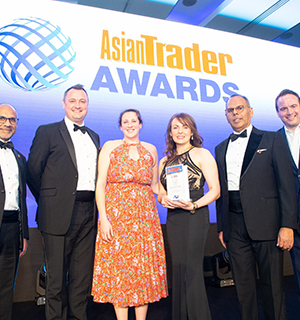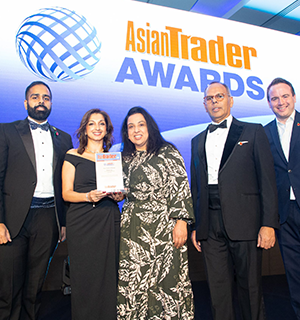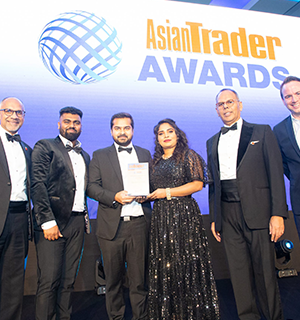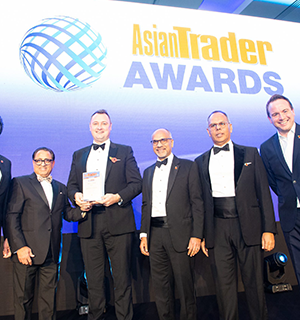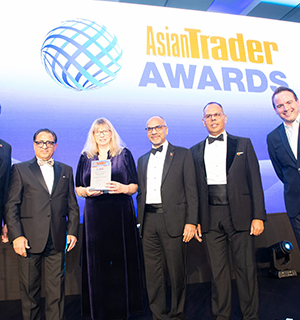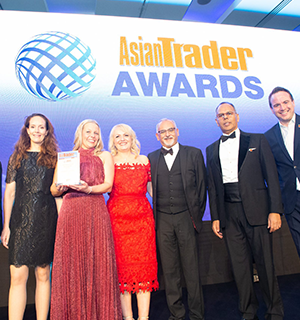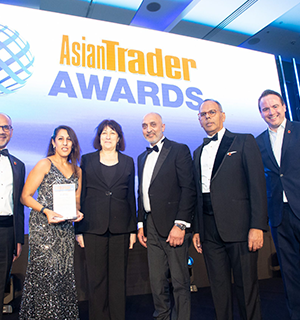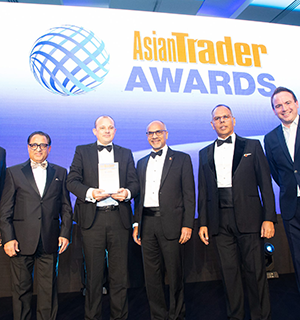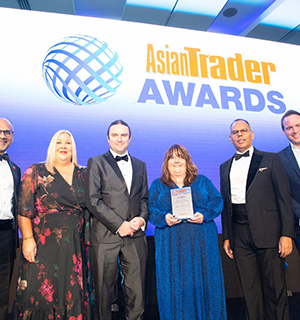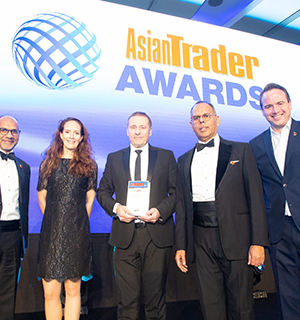Barnie Choudhury, Asian Media Group’s Editor-at-Large for its Eastern Eye national newspaper, yesterday conducted an exclusive interview with Sadiq Khan – the first the current London mayor has given ahead of the May 6 election
In 2016 Sadiq Khan was elected as the first Asian mayor of a major European city – and with the largest personal mandate of any politician. This interview, prior to the upcoming mayoral election on May 6, was an opportunity to examine his record and hear Khan’s plans for a possible second term, leading the capital out of the pandemic and into a post-Brexit world.
After paying tribute to “Uncle” Ramniklal Solanki, the recently-deceased founder of Asian Media Group (“He was a pioneer in every sense of the word … at a time where there weren’t there wasn’t any Asian media for many of fathers and mothers to grandparents to read.”) Khan quickly turned to the upcoming election, which he called “the most important election in London’s history”:
“The reason I say that this is the most important election is because of the challenges we faced with Brexit but also the consequences of this awful pandemic over the last year, when more than 18,000 Londoners have lost their lives and more than 300,000 Londoners have lost their jobs, with more than a million currently furloughed. The furlough scheme ends in September, and there’s a real possibility that many could then be made redundant.”
Khan went on to outline his plans for avoiding economic misery and bringing the capital back to life after lockdown.
“If I am re-elected my focus will be jobs, jobs, jobs,” he said, “making sure City Hall does what it can to protect those who are currently working, to support the creation of new jobs, and also to help those who lose their jobs get back into work as soon as possible.”
He said funds have been set aside for these policies, and that with partners, a package of measures worth over £544 million had been created – to establish academies to help “skill up” Londoners in the green sector, the creative sector, the digital sector, and in health and social care – with £6million to promote the West End.
Khan added that with the Euros and visiting cricket teams from India, Pakistan and New Zealand, the capital was set for a riotous summer of sport acting “as a springboard for rapid recovery” in the capital.
A two-horse race
Khan described the upcoming election as a two-horse race, and when asked why he was seeking a second term, said he loves the job and the city, and believes he has a disproportionate influence over the government through the “bully pulpit” of City Hall. He added that it was a “tough job – don’t get me wrong, I’m not looking for sympathy. We can’t be complacent and assume we are always going to be great. We can’t always assume people with good values will be leaders of our city or our nation. That’s why you’ve got to step up, if you believe you’ve got something to give.”
Khan claimed that after his first attendance at the government’s emergency COBRA meeting last year, he was convinced drastic measures should have been taken much sooner to confront the raging Covid pandemic, but that Boris Johnson dragged his feet. However, he was adamant that “This needs to be the last lockdown … I’m hopeful that even though there might be a third wave, because most of us will have had the vaccine the consequences won’t be serious. I was recently with experts from the NHS and Public Health England and they think that as long as there are no particular new variants, we can avoid large numbers of people going to hospitals and avoid a further lockdown as long as we continue with the vaccine roll-out, test and trace, and supporting those have to have to isolate.”
Going downtown
Khan described five areas relating to leisure and entertainment he was concerned to reinvigorate: hospitality, retail, culture, leisure and tourism.
“All five markets rely on footfall. The good news is great progress on the lockdown so by May 17 people will be eating inside again, and by June 21 all the restrictions will be off.” Khan also said that public transport was safe: “Don’t take my word for it. We’ve got Imperial College checking it and no COVID has been found on the network. We’ve got world class cleaning, and we are also working with the theatres and culture to make sure that events will be taking place in the centre of London to encourage people back … All the evidence from the vaccine rollout, hospital admissions from those suffering the worst consequences in ICU, from headroom in the NHS – it’s all good.”
Khan said the real danger to London now is that people have grown used to enjoying leisure at home, and that for the sake of the culture and hospitality industries, they must be encouraged to venture out again, “by making the experience of going out a better one.”
This led to questions over the increase in the congestion charge that would arguably torpedo any plans to bring the capital back to life, as well as penalising storeowners and charities attempting to deliver hundreds of thousands of meals to the needy across the capital.
Khan denied that it was anything to do with him, blaming Westminster for withholding funds that had forced extensions and higher charges. He claimed that the government only agreed to send funds to keep TfL going during the pandemic if Khan assented to many revisions (upward) of congestion charge conditions to repay what were in effect merely loans: “Which is why it’s now seven days a week, not five days, and it goes to 10pm, not 6.30; and it’s £15 rather than £11.50.”
Khan said he replied “No way” to the government’s demand that the congestion charge be extended throughout the area within the north and south circular roads (snagging an extra four million Londoners in the congestion charge zone). Khan claimed he told the government that it could take charge of TfL if that was the situation. A second term as mayor, he said, would give him the mandate to confront the government and ask for the funds to be able to lower the charge once again, although he could give no date for when that might be.
Also, Khan did not address the issue of the upcoming Ultra Low Emission Zone requirements which will see many older cars banned from within central London and eventually Greater London, too, adversely affecting poorer Londoners as much or more than the congestion charge.
London crime
When the questions turned to crime and law and order, Khan asserted that despite media headlines, crime had actually gone down on his watch.
“Serious youth violence began to go up around the country, including London, in 2014,” he said. “I became mayor in 2016. What I’ve done is achieved big things to address this issue. One is more than £1billion invested in the police, with 1000 more police officers since I became mayor. But I have also invested in young people, more than £17million in the Young Londoners fund. As Tony Blair would say, be tough on crime, and tough on the causes of crime. And here’s what’s happened. Since I’ve been mayor, youth violence is starting to go down.”
Violence against shopkeepers is way up, though, and Choudhury asked why, with Khan the Police and Crime Commissioner for the metropolitan area, they “cannot get the copper to come out and see them because it isn’t worth their time” when they suffer crimes in their stores.
Khan again blamed central government, arguing that 80 per cent of police funding comes from central government, 20 per cent from City Hall. “Because of cuts from government, that 80 per cent has gone down to 70 per cent. And so at one stage our police officer numbers went down to 30,000 – because of cuts from central government. I’ve used council tax and business rates to increase police officer numbers. Just from City Hall, we have funded an additional 1300, but that is against a decline [of funds from] central government.”
Khan said he has made it easier than ever to report crimes – online and by smartphone – and that data can help to change police priorities with greater speed, but he concluded: “If retailers are concerned about theft from your shop premises, if you don’t report it, we can’t make it a priority. So please report it.”
As for the upcoming campaign and election for London Mayor, Khan said he wanted a friendly contest.
“You could be a friend with a Tory not be an enemy. Sajid Javed is a good friend of mine. I call him a friend. He’s a Tory. We don’t hate each other. We’re opponents, not enemies. But there are some people who try to cause mischief, and try and divide us. I’ve always, as mayor, tried to bring people together. It’s really important for us to see that diversity isn’t a weakness but a strength. And as long as I’m there, I’ll carry on doing that.”







 To use this website you must be aged 18 years or over. Please verify your age before entering the site.
To use this website you must be aged 18 years or over. Please verify your age before entering the site.
